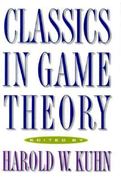Answered step by step
Verified Expert Solution
Question
1 Approved Answer
1. Opportunity Costs What do economists mean by opportunity cost? What are your opportunity costs in taking this course? 2. Demand v. Quantity Demanded What
1. Opportunity Costs What do economists mean by "opportunity cost?" What are your opportunity costs in taking this course? 2. Demand v. Quantity Demanded What is the difference between a decline in the quantity demanded and a decline in demand? Given an example of something that you now buy less of. Is it an example of a decline in the quantity you demand or a decline in your demand? 3. Behavioral Economics Traditional economic theory makes a number of simplifying assumptions that may not always be true, e.g., that people always make rational decisions that are in their own best interest. In recent years a new subdiscipline of economics has emerged called behavioral economics that attempts to employ a more realistic set of assumptions about how people behave to explain economic decision-making. Based on information in this link (Behavioral Economics For Dummies Cheat Sheet) present two examples from your own experience that illustrate principles of behavioral economics. Further reading for those with an interest: Ariely, Dan. 2009. The End of Rational Economics. Harvard Business Review, Jul-Aug. Connick, Hal. 2018. Read this Story to Learn How Behavioral Economics Can Improve Marketing. Marketing News. Jan. You must start a thread before you can read and reply to other threads
Step by Step Solution
There are 3 Steps involved in it
Step: 1

Get Instant Access to Expert-Tailored Solutions
See step-by-step solutions with expert insights and AI powered tools for academic success
Step: 2

Step: 3

Ace Your Homework with AI
Get the answers you need in no time with our AI-driven, step-by-step assistance
Get Started


